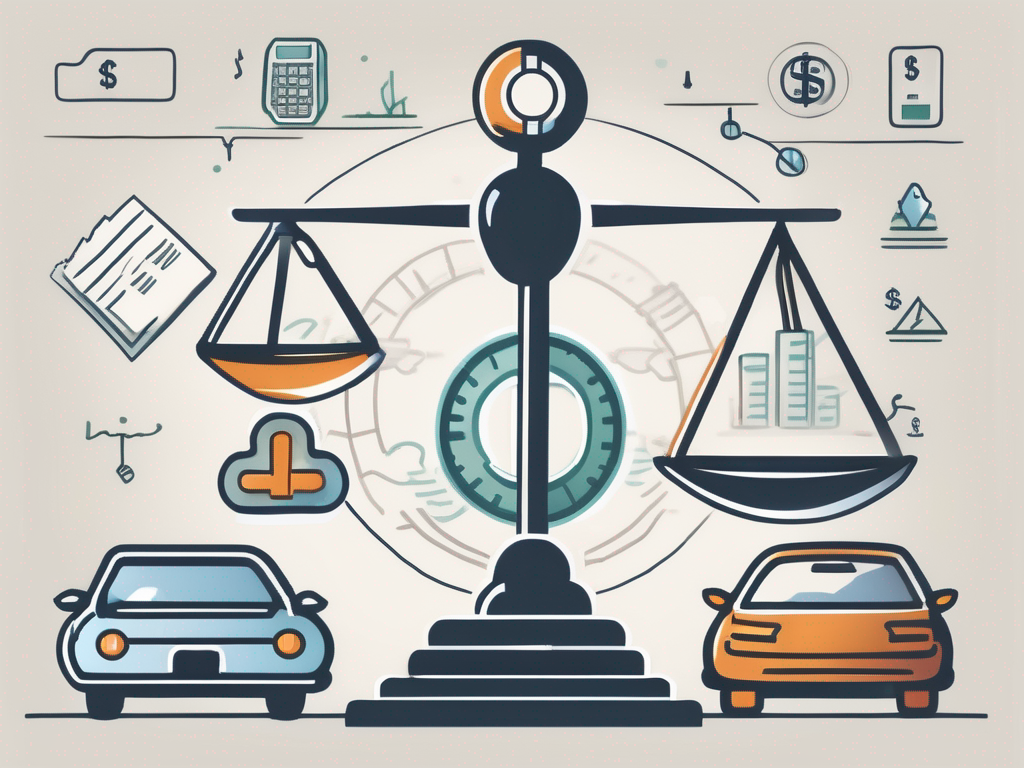Accidents can happen to anyone, often leading to financial strain due to medical bills, lost wages, and more. Understanding your rights and the process of claiming compensation is crucial for recovering both physically and financially. This guide will help you navigate the complexities of accident compensation, ensuring you receive the compensation you deserve.

Understanding Accident Compensation
The Basics of Accident Compensation
Accident compensation refers to the financial reimbursement that a victim receives for losses incurred due to an accident. These losses can be both tangible, such as medical expenses, and intangible, such as pain and suffering. The primary goal of accident compensation is to restore the victim to their pre-accident state as much as possible.
Compensation can be sought through various avenues, including insurance claims or legal action against the party at fault. Understanding the essential components—liability, damages, and the claims process—is fundamental to securing the appropriate amount of compensation. It is also important to note that each jurisdiction may have different laws governing accident compensation, which can affect the outcome of a claim. Therefore, familiarizing oneself with local regulations and seeking professional legal advice can be crucial steps in navigating the complexities of the compensation process.
Types of Accident Compensation
There are different types of compensation available, depending on the specifics of the accident. They commonly include:
- Medical Expenses: Covers costs related to hospital stays, surgeries, rehabilitation, and ongoing care.
- Lost Wages: Compensates for income lost due to time off work for recovery.
- Pain and Suffering: Addresses the physical and emotional distress resulting from the accident.
- Property Damage: Reimburses the costs of repairing or replacing damaged property, such as a vehicle.
Each type of compensation requires documentation to support the claim, making it essential to collect all relevant information post-accident. This may include medical records, pay stubs, and photographs of the accident scene. Additionally, victims may also be entitled to compensation for future losses, such as ongoing medical treatment or diminished earning capacity, which can further complicate the claims process. Understanding these nuances can help victims advocate more effectively for their rights and ensure they receive the full extent of compensation they deserve.
The Role of Insurance in Accident Compensation
Dealing with Your Insurance Company
Insurance plays a pivotal role in accident compensation, serving as the financial backbone in many instances. When you file a claim with your insurance provider, it’s crucial to understand that they aim to minimize payouts, which can affect what you ultimately receive.
Effective communication with your insurance company is vital. Report the accident promptly, provide all necessary details, and follow up regularly. Keeping thorough records of every interaction can also be beneficial should a dispute arise. Moreover, understanding the nuances of your policy can empower you during negotiations. For instance, knowing the specific circumstances under which your coverage applies can help you advocate more effectively for your claim. If you feel that your insurer is not being forthcoming, consider seeking advice from a legal professional who specializes in insurance claims.
Understanding Insurance Policies and Claims
Each insurance policy is different, and understanding what yours covers is essential. Familiarize yourself with key terms such as liability limits, coverage types, and exclusions. Additionally, knowing your policy’s claims process can expedite your journey to compensation.
Take the time to read through your policy documents thoroughly and consult with your agent if any terms are unclear. Understanding how your coverage applies to your situation can make a significant difference in your compensation experience. Furthermore, be aware of the timelines associated with filing claims, as many policies have strict deadlines that, if missed, could jeopardize your ability to receive compensation. It’s also wise to stay informed about any updates or changes to your policy, as these can impact your coverage and claims process. Engaging in proactive discussions with your insurance agent can help clarify any uncertainties and ensure that you are adequately prepared should an accident occur.
Legal Aspects of Accident Compensation
When to Hire a Lawyer
While many individuals manage to settle their claims without legal assistance, there are scenarios where hiring a lawyer becomes necessary. If your case involves severe injuries, significant medical costs, or disputes about liability, legal guidance can prove invaluable. In instances where insurance companies are involved, they often employ tactics to minimize payouts, making it crucial to have an experienced attorney on your side who can advocate for your best interests.
An attorney specialized in personal injury can navigate the complexities of the law on your behalf, ensuring that your rights are protected and maximizing your chances of receiving fair compensation. They can also help you understand the nuances of your case, including potential compensation for lost wages, pain and suffering, and future medical expenses. Furthermore, a skilled lawyer can negotiate with insurance adjusters, who may not always have your best interests at heart, and can represent you in court if a fair settlement cannot be reached.
Legal Rights and Responsibilities
Understanding your legal rights and responsibilities is a vital component in pursuing accident compensation. You have the right to seek compensation for your damages, but you are also responsible for providing evidence of your losses. This includes keeping detailed records of all medical treatments, consultations, and any other costs related to the accident. Additionally, documenting your recovery process through photographs or journal entries can provide compelling evidence of your pain and suffering.
Moreover, be mindful of the statute of limitations—each state has a specific deadline for filing claims, and missing this deadline could jeopardize your case. It’s also important to be aware of comparative negligence laws, which may affect your compensation based on your level of fault in the accident. Understanding these legal intricacies can empower you to make informed decisions throughout the claims process. Consulting with a legal expert can provide clarity on these matters, ensuring that you are fully aware of your rights and obligations as you navigate this challenging time.
Negotiating Your Accident Compensation
Tips for Successful Negotiation
Negotiation is a crucial step in the compensation process, especially when dealing with insurance companies. To enhance your chances of success:
- Prepare Your Case: Gather all necessary documentation to support your claim, including medical records, expense receipts, and proof of lost wages.
- Know Your Worth: Be aware of the total damages incurred and have a reasonable compensation amount in mind, which factors in all types of losses.
- Stay Calm and Professional: Approach discussions with a level head. Emotional outbursts can undermine your position.
- Be Willing to Compromise: While you want to maximize your compensation, being flexible can lead to an amicable resolution.
Common Mistakes to Avoid in Negotiation
Negotiation can be a minefield, and certain missteps can hinder your compensation efforts. To avoid making mistakes, steer clear of the following:
- Aggressive or confrontational behavior that can alienate the other party.
- Accepting the first offer without evaluating its adequacy.
- Underestimating the time needed for negotiations, leading to premature settlements.
- Neglecting to document all interactions and offers, which can be critical for reference later.
Additionally, it’s important to understand the nuances of the negotiation process. Each insurance company has its own policies and practices, and being aware of these can give you an edge. Researching the specific insurer’s history with claims similar to yours can provide insight into their negotiation tactics and settlement patterns. This information can help you tailor your approach, making it more effective and strategic.
Moreover, consider seeking professional assistance if the negotiation feels overwhelming. Hiring an attorney who specializes in personal injury claims can be invaluable. They can offer expert guidance, advocate on your behalf, and ensure that your rights are protected throughout the negotiation process. Their experience can help you navigate complex legal jargon and bolster your case with additional evidence, ultimately increasing your chances of receiving fair compensation.
Maximizing Your Compensation Amount
Factors Influencing Compensation Amount
Several factors can influence the amount of compensation you can receive. These include the severity of injuries sustained, the clarity of fault, the extent of financial losses incurred, and the quality of evidence provided. Insurers will examine these elements closely before making a decision.
Additionally, factors such as state laws, the insurer’s policies, and the negotiating skills of both parties play a role. Being aware of how these elements interact can help you present a stronger case. For instance, some states operate under a comparative negligence rule, meaning that your compensation may be reduced based on your percentage of fault in the incident. Understanding the nuances of such laws can significantly impact your overall compensation amount.
Strategies to Increase Your Compensation
To maximize your compensation, consider implementing the following strategies:
- Document Everything: Keep thorough records of all expenses, treatments, and changes in your daily life due to the accident.
- Consult Professionals: Engaging lawyers, medical professionals, and financial advisors can provide insights that strengthen your claim.
- Be Patient: Avoid rushing the process. Time often allows for additional evidence and a clearer picture of your damages, enhancing your negotiating position.
By equipping yourself with knowledge about accident compensation and employing effective strategies, you can navigate your recovery journey with increased confidence, ensuring you secure the compensation that reflects your genuine losses and needs. Furthermore, consider the emotional toll that an accident can take on your life. Documenting not just financial losses but also the psychological impact—such as anxiety, depression, or changes in lifestyle—can provide a more comprehensive view of your damages. This holistic approach can be crucial in negotiations, as it underscores the full extent of how the incident has affected your life.
Moreover, staying organized throughout the claims process can be a game-changer. Creating a dedicated folder for all correspondence, medical records, and receipts can streamline your efforts and ensure that nothing is overlooked. This level of organization not only helps in presenting a clear and compelling case but also demonstrates to insurers that you are serious and well-prepared, which may encourage them to offer a more favorable settlement. Remember, the more detailed and organized your documentation, the stronger your position will be in any discussions regarding compensation.
Managing Your Finances After Receiving Accident Compensation
Once you’ve secured your accident compensation, it’s important to handle the funds wisely to ensure long-term financial stability. For useful tips on how to manage your money effectively, check out this guide on 10 Personal Finance Tips for Managing Your Money. These strategies can help you make the most of your compensation and safeguard your financial future.
References
- LegalMatch. (n.d.). Accident Compensation Overview. Retrieved from https://www.legalmatch.com
- This resource explains the fundamentals of accident compensation, including the legal steps involved in securing damages.
- Nolo. (n.d.). Accident Claims: What You Need to Know. Retrieved from https://www.nolo.com
- A detailed guide covering essential information on filing accident claims and how to negotiate with insurance companies.
- FindLaw. (n.d.). Insurance Claims for Personal Injury Cases. Retrieved from https://www.findlaw.com
- Discusses the role of insurance in personal injury claims and provides steps for handling the claims process.
- American Bar Association. (n.d.). Hiring a Personal Injury Lawyer. Retrieved from https://www.americanbar.org
- Offers guidance on when to seek legal help for accident-related claims, especially in complex cases involving significant injuries or insurance disputes.
- AllLaw. (n.d.). Maximizing Your Personal Injury Settlement. Retrieved from https://www.alllaw.com
- Practical tips and strategies for increasing the settlement value of a personal injury claim, including avoiding common negotiation pitfalls.





Leave a Comment